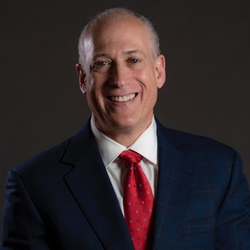“Trust is…the highest form of human motivation, but it does not preclude training to bring their level of competence up to that level of trust.” -Stephen Covey
Empowered staff are productive staff and a crucial part of a well-managed practice. Once you’ve given your staff member the knowledge and the training to succeed, your role is to step back. As the doctor, you keep staff accountable and allow each employee to actually work without micromanaging.
Keeping Accountability Checks
The goal is to have the new hire take charge of their job. Being in charge means they have the knowledge of what to do and how to do their tasks. It means that the office manager and practice owner trusts them and makes them responsible to get the results that are required. You do not micromanage, but you definitely make the staff member accountable.
This is done by having the employees measure their results. So, if their job is to keep the appointment schedule full, they should report to you weekly with the total number of patient visits and the percentage of kept appointments. You then can address any issues that might have occurred during the week that caused the numbers to dip or escalate.
How Truly Empowered Staff Manage Your Practice
Now, here is the final piece of the puzzle. Every staff member is in charge of their post. So let’s say you have a marketing person and her job is to get the phones to ring and get more patients through the door. The marketing person is running multiple events at the same time and they have to know where these patients are coming from. If not, unnecessary money could be spent on the wrong event. You have trained the front desk to always ask a patient how he heard about you. In this instance, one front desk person continually forgets to ask.
The marketing person could easily bother you or the office manager about this problem. If the marketing person is truly empowered, however, they will, in a respectful manner, approach the front desk person with the problem and handle it. The front desk person does not get upset because they understand this is truly needed to make the office function at optimum levels.
Now, there could be good reasons the front desk person is not following through on this task. One is that the office is really busy and they are the only person answering the phones, which makes it difficult for her to do her job properly. The root issue is brought up during the office meeting, and solutions to the problem are discussed and implemented.
This is true empowerment of the staff. Through education, demonstration, and trust, you foster a team that efficiently and effectively completes their job and helps your practice succeed.
For more information about the Top Practices Practice Management Institute or any of our other programs, email us at Answers@TopPractices.com or call us at (717) 725-2679.
